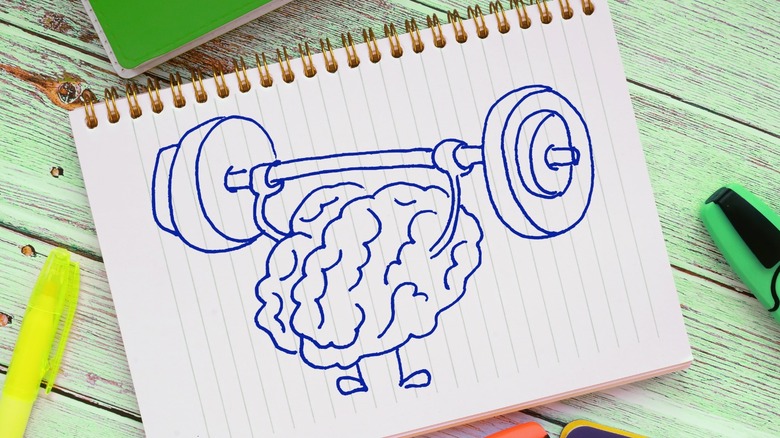What Is Muscle Memory And How Does It Impact Your Fitness Goals?
We may receive a commission on purchases made from links.
When you think of a memory you might try to recall your last vacation, the face of a loved one, or the smell of a certain food you love. In a more broad sense, memory is defined as a continuous process where information is learned, stored, and recalled over time (per Harvard University). In general, there are two systems of memory. System 2 involves more conscious and deliberate efforts, which usually occur during the initial learning phase, reports Harvard University. System 1 is more automatic and comes with practice. For example, the first time you do a memory puzzle may take a lot of thinking and even make you tired. However, over time you will begin to perform the task unconsciously and with less effort.
But memory is more than mental gymnastics: You also have types of memory related to movements. For example, the reason that you can ride a bike years later after stopping is due to motor memory. In fact, even your muscles have memory (via Washington Post). Muscle memory describes how prior muscular activity — say you used to be an athlete or work out in the gym — helps muscles gain more strength and mass after a long period of no exercise, particularly when compared to those who did not train their muscles prior. Here's everything you need to know about muscle memory and its benefits.
Use it but don't lose it: the magic of muscle memory
When you work out to a certain degree, you damage and fatigue your muscles. This process of damage and the ensuing recovery and rest process is what enables the progression of strength and growth in muscles (per Healthline). Some experts note that muscle memory is made possible by the retention of cellular nuclei in muscle fibers that can be aroused again in the future, reports The Washington Post. The magic is that muscle memory not only lasts over time but also enables more rapid growth when you return to exercise. You might wonder what this means for your fitness goals.
First, there is no better time than now to get started. Trained muscles — even after five months of rest — can lift weights up to 25% heavier than untrained muscles (via Nike). Second, if you haven't worked out in a long time — perhaps due to injury, work, or even the pandemic — then muscle memory will help you get back into shape quicker than you might expect. However, be cautious to not try and return to your old benchmarks right away. It will still take some time to build back up to your previous fitness achievements.

